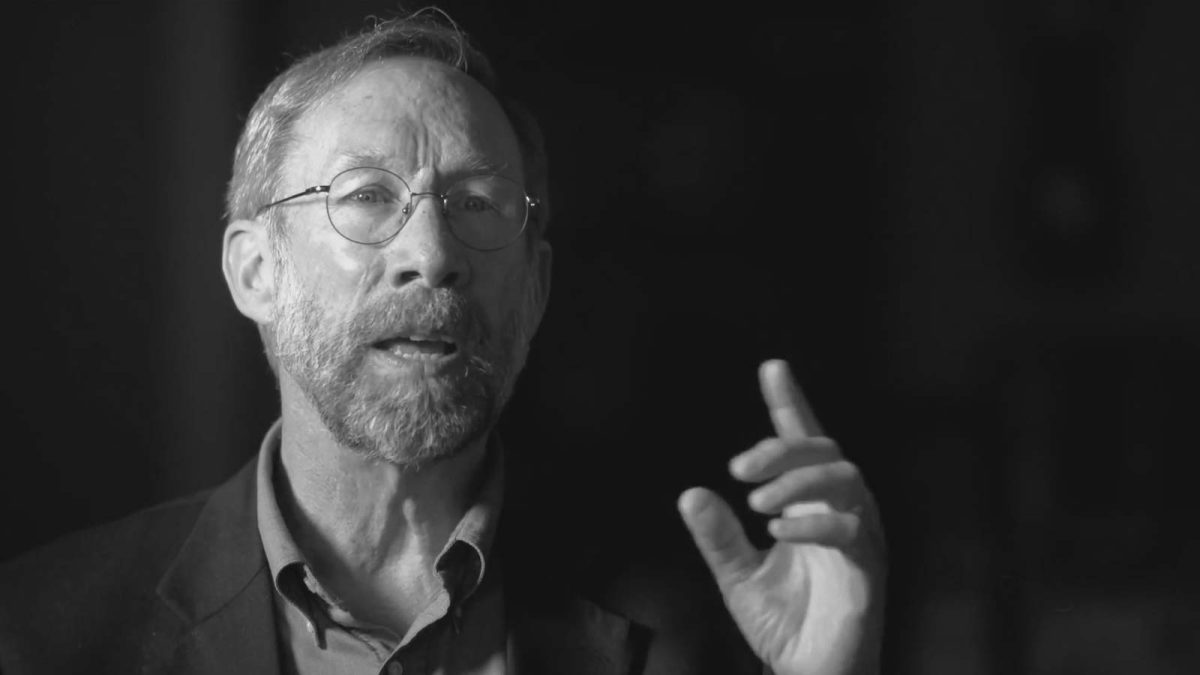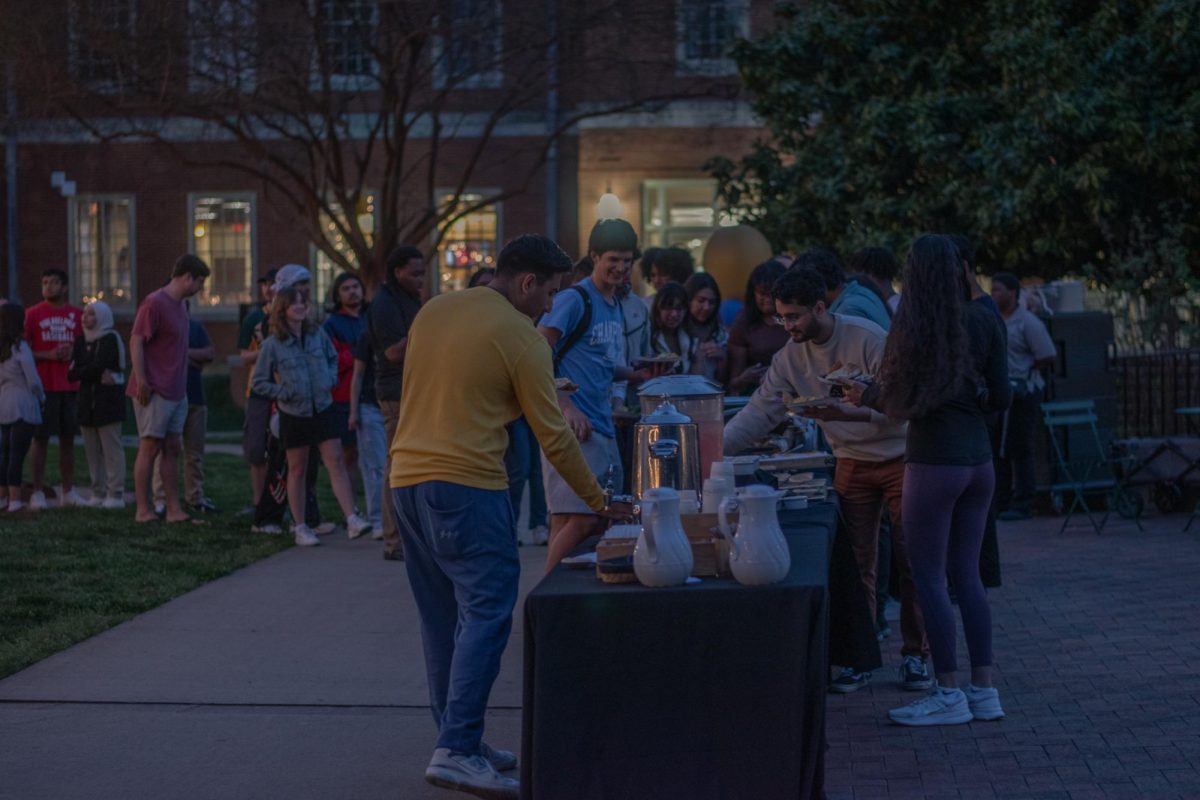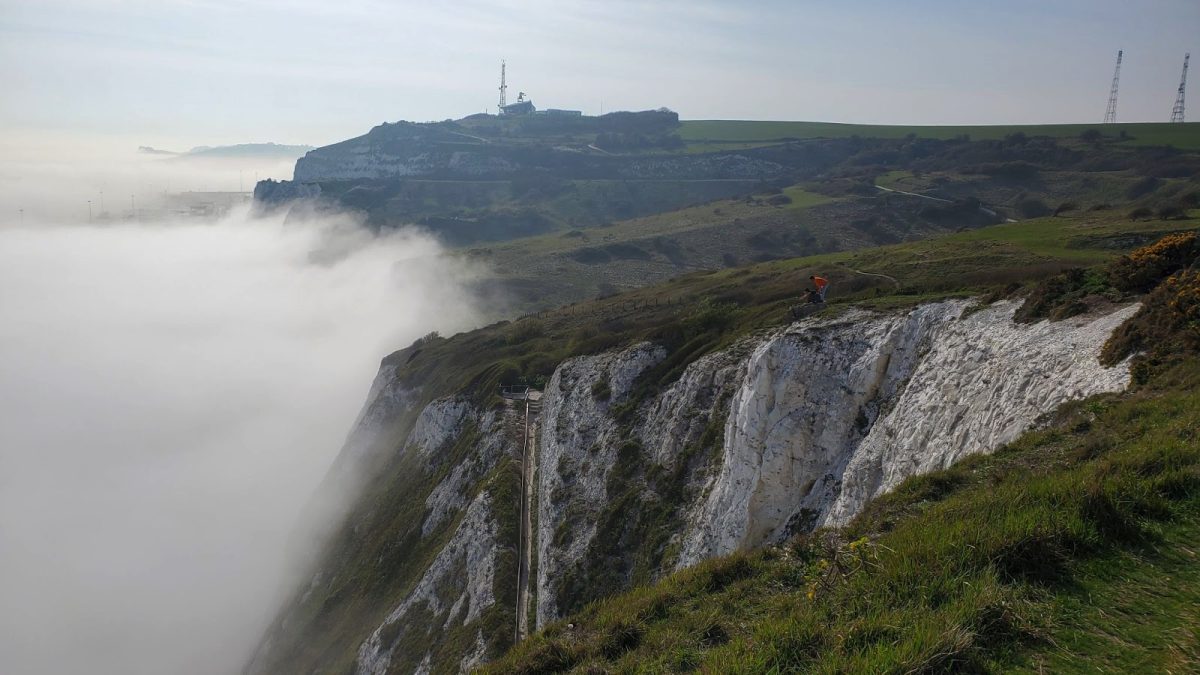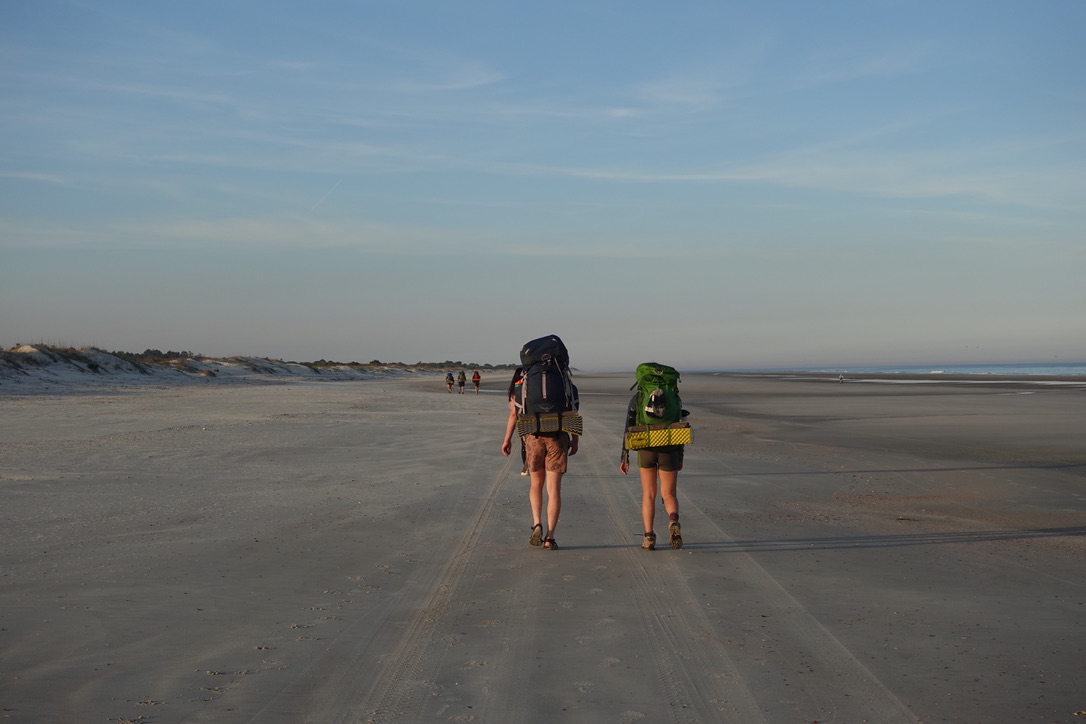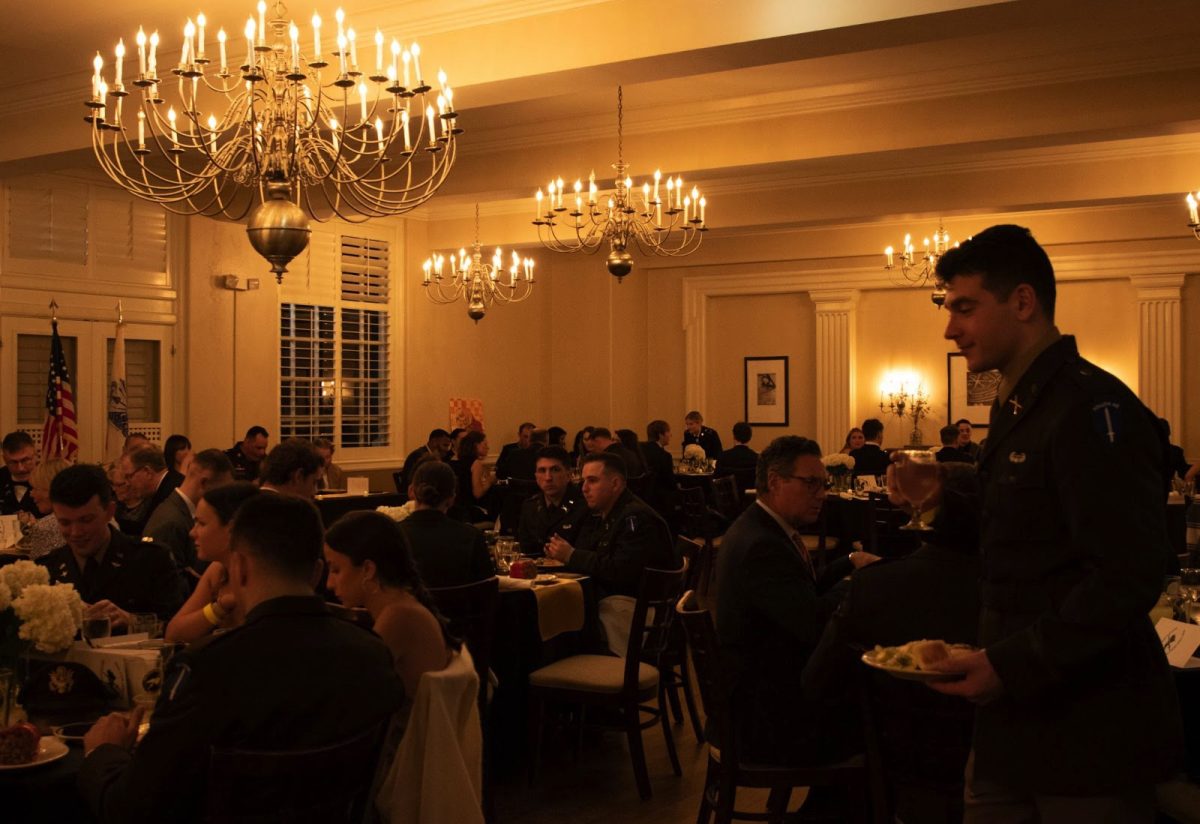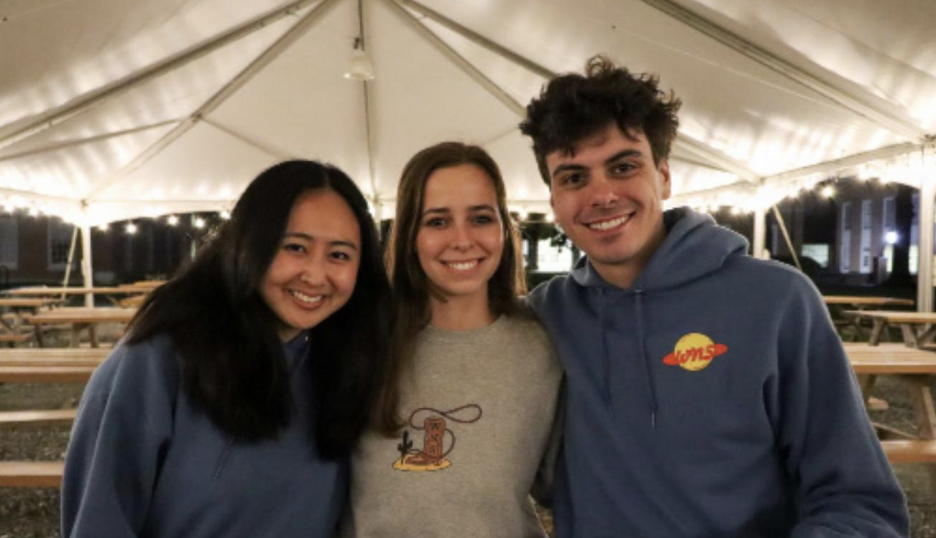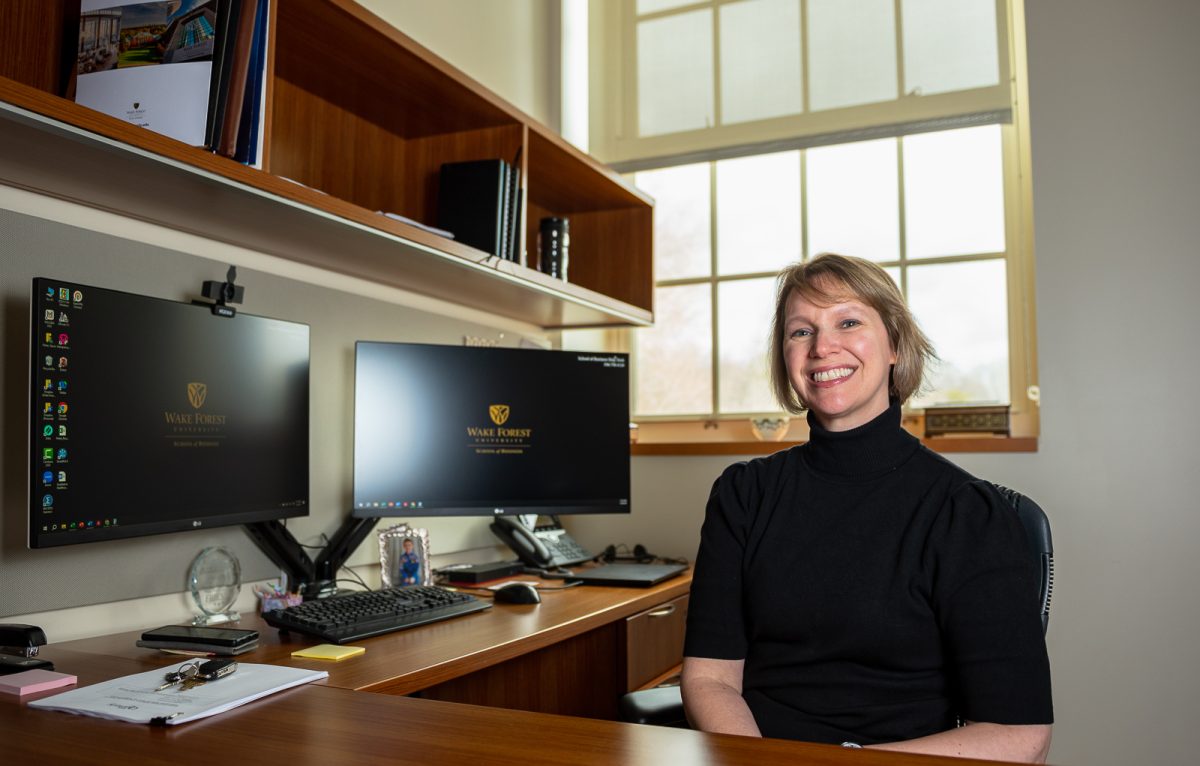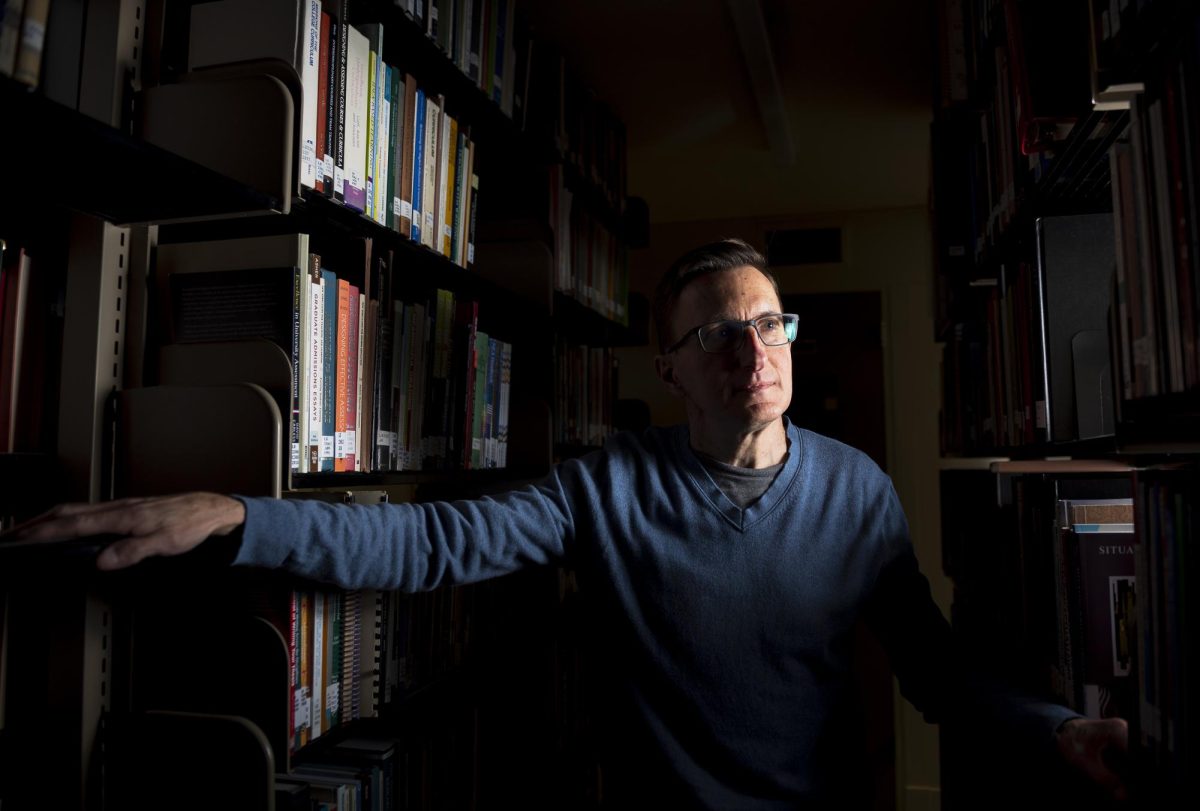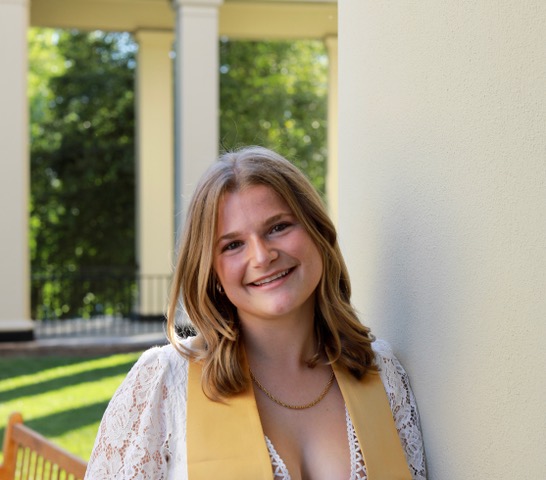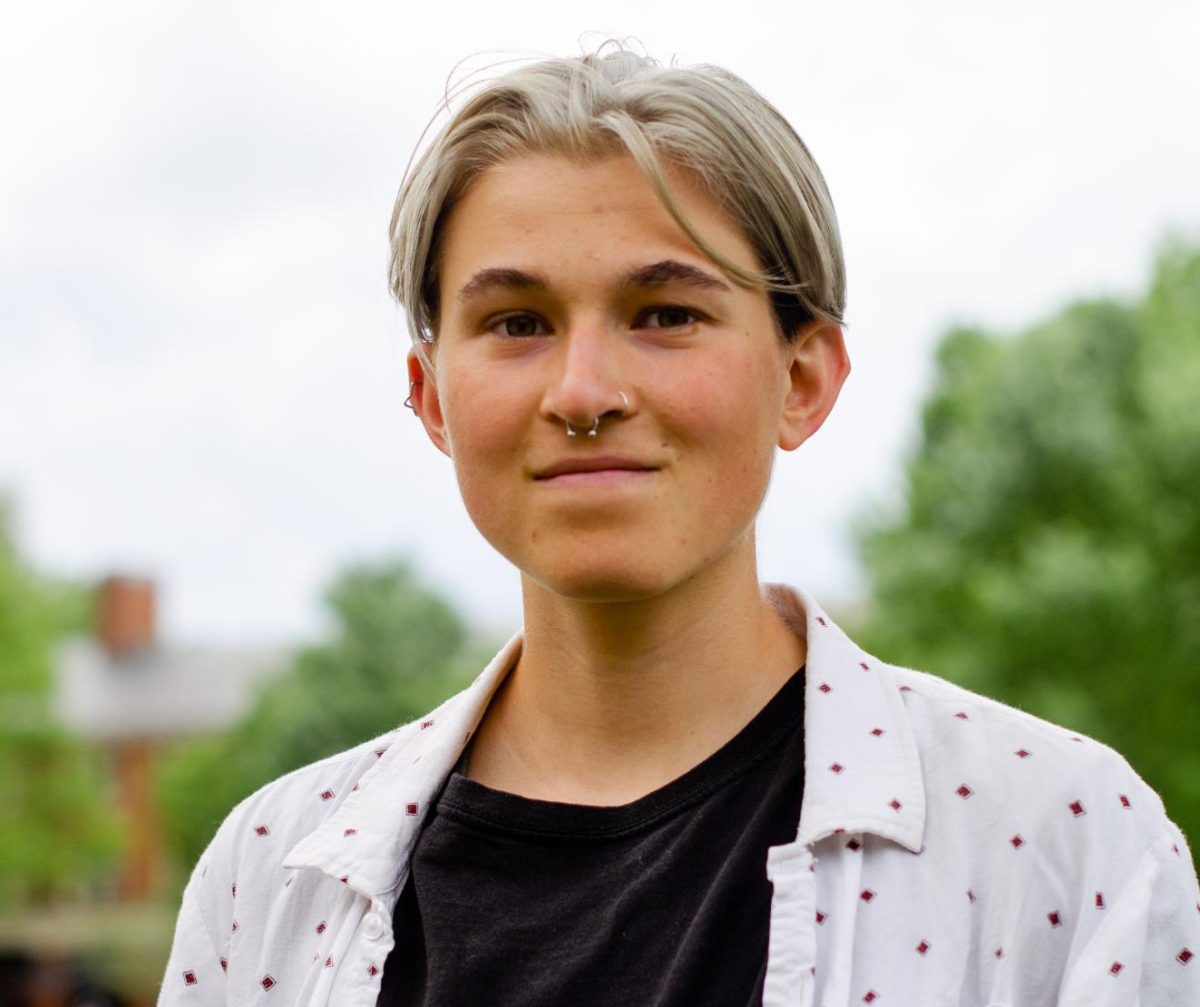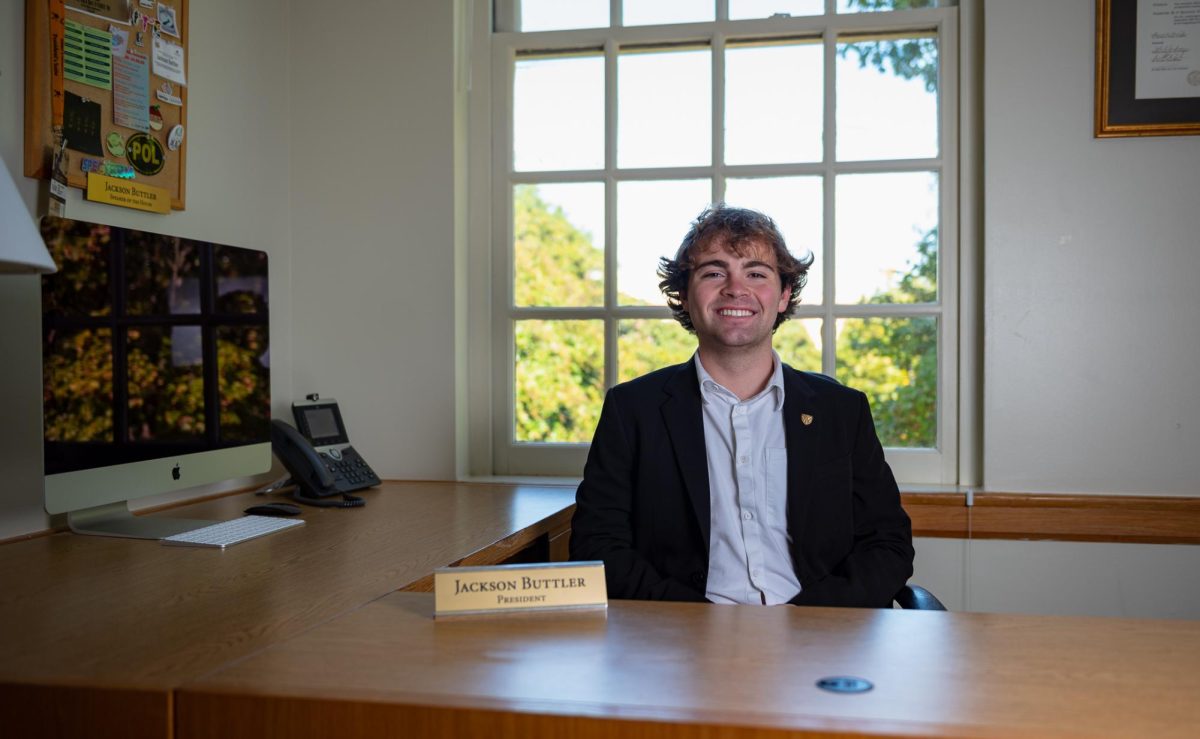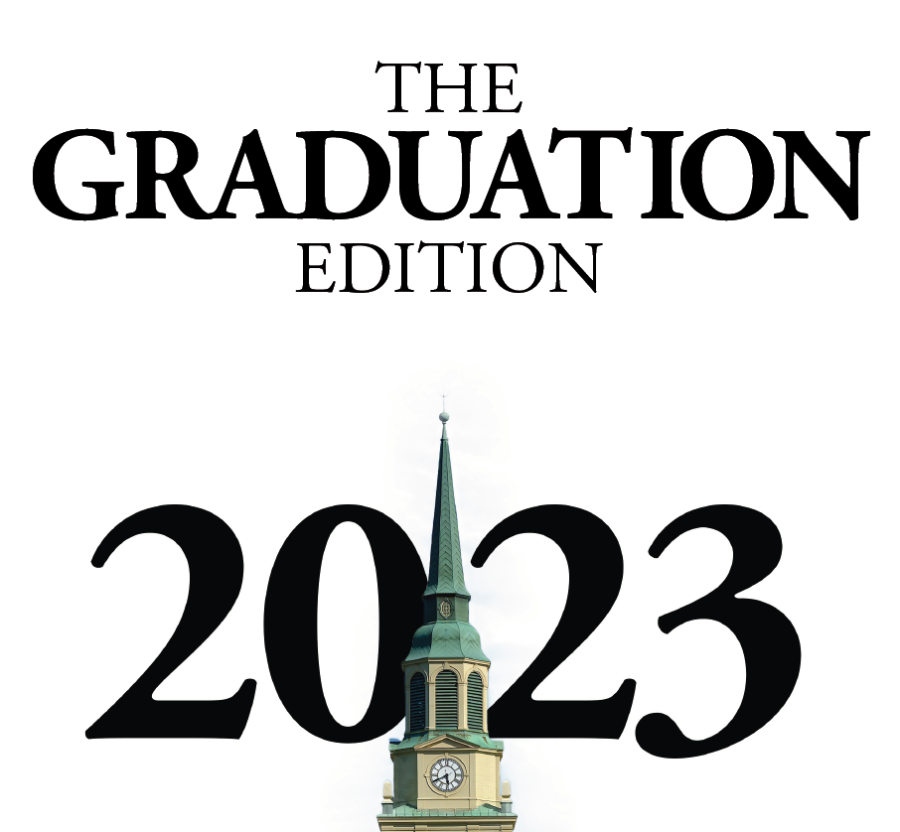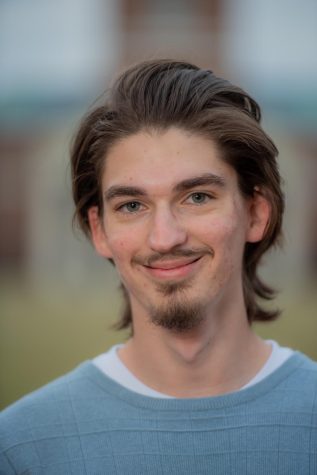In more ways than one, Wake Forest is a different campus from the one Dr. Stan Meiburg knew as an undergraduate studying political science almost 50 years ago.
For one, it’s grown quite a bit. And yet, according to Meiburg, who is currently co-executive director of the Andrew Sabin Family Center for Environment and Sustainability, Wake Forest maintains its charm as a place of companionship and mentorship.
“I did wonder when I came back if it was going to feel the way it did when I was a student,” Meiburg said. “But that essential commitment on the part of faculty to engage the students, to care about teaching, to care about education — it’s still there. You see that with faculty all over, and it’s the experience I had — and in my own experience of teaching, that’s what I want to give back. Because I think that is, in fact, the thing that makes Wake Forest special more than anything else.”
Meiburg’s connection to Wake Forest began before he was a student. In 1957 — just one year after the college moved from Wake Forest to Winston-Salem — the Meiburg family moved into what used to be the faculty apartments on Allen Easley Drive, now renamed Allen Easley Street.
“And what I remember of course, from those days,” Meiburg said, “is four-year-old me coming up over that ridge on what was then Silas Creek Parkway, and you see [the campus] spread out, and there’s this ginormous steeple all lit up at night. It was terrifying.”
Meiburg spent his formative years around Wake Forest at the same time the school was establishing its identity in Winston-Salem. It was certainly a memorable era for Wake Forest’s sports — Arnold Palmer’s golf career was at its peak, and the men’s basketball team appeared in the NCAA tournament Final Four for the only time in school history — all of which Meiburg followed reading the sports sections in the paper.
There is a great cloud of Wake Forest witnesses and this school deservedly gets tremendous affection and support from people who went here — you become a member of that cloud.
— Dr. Stan Meiburg
Though Meiburg moved from Winston-Salem at age 11, his affinity for Wake Forest continued, and in 1971 he enrolled as an undergraduate after receiving a Guy T. Carswell Scholarship.
Perhaps as a testament to Wake Forest’s uncanny ability to spark lasting relationships, Meiburg still remembers — and remains good friends with — the first person he met that fall, former Director of the Wake Forest Scholars Program Tom Phillips, who retired in 2020.
He also has fond memories of late nights in his dorm room arguing and debating with his roommate, Mark Thomas, with whom he shared the politics departmental prize when they graduated in 1975.
“I remember Mark all the time when I walk around here,” Meiburg reflected. “My whole life has been blessed, really, by all of these threads, which in some way, shape or form connect to Wake Forest.”
Of the 42 years between Meiburg’s graduation from Wake Forest and his 2017 return to head the Graduate Program of Sustainability, he spent 39 of them serving in various positions within the Environmental Protection Agency (EPA), including as Deputy Administrator from 2014-2017.
Meiburg’s path to the EPA wasn’t exactly traditional. After pursuing a Ph.D. in political science at Johns Hopkins University, he was connected by a professor in what he described as “a happy accident.”
“Well, I could barely spell EPA at that time,” said Meiburg. “But they were going to pay $1,000 a month, so I thought I was rich, and I said ‘me, me, me!’ and, in fact, started up that November. And three months turned into 39 years.”
Even though he jokes about wishing he had taken more chemistry, Meiburg’s experience has made him a believer in the liberal arts education and its ability to prepare students to engage in a wide range of endeavors over the course of their life.
One of the things I especially hope for the Center is to promote interdisciplinary activity across all the different aspects. Because the School of Law, the School of Business, the School of Medicine, the college and the engineering department all have tremendous contributions that they can make, and sometimes they make the best [contributions] when they are integrated and work across lines and work together.
— Dr. Stan Meiburg
“I admire so much [that] students, who I see now, are doing all of their educational preparation and things like that to study environment[al] sustainability, when that was not my experience,” Meiburg said. “But I think what did help… was that the basic skills that you learn at Wake Forest, the writing skills and the communication skills — the so-called soft skills that are only called soft because they’re really hard. All those things serve you very well no matter what field people choose to go into.”
Today, Meiburg is encouraged by the recent $5 million donation to the newly renamed Andrew Sabin Family Center for Environment and Sustainability and what it means for the future of that liberal arts education in sustainability.
“One of the things I especially hope for the Center is to promote interdisciplinary activity across all the different aspects,” Meiburg said. “Because the School of Law, the School of Business, the School of Medicine, the college and the engineering department all have tremendous contributions that they can make, and sometimes they make the best [contributions] when they are integrated and work across lines and work together.”
Reflecting on the paths that have led him to where he is today, Meiburg considered the many memories and relationships that have stuck with him through time.
“There is a great cloud of Wake Forest witnesses,” Meiburg said, “and this school deservedly gets tremendous affection and support from people who went here — you become a member of that cloud.”
He continued: “So all those threads, and even the threads of my parents living in that community, the years that they did and walking around the old campus… you just feel that cloud of witnesses everywhere you go. And I feel, again, it’s been such a big part of my life, and that makes it so special to be here and to be able to continue to give some of that spirit back to current students.”


